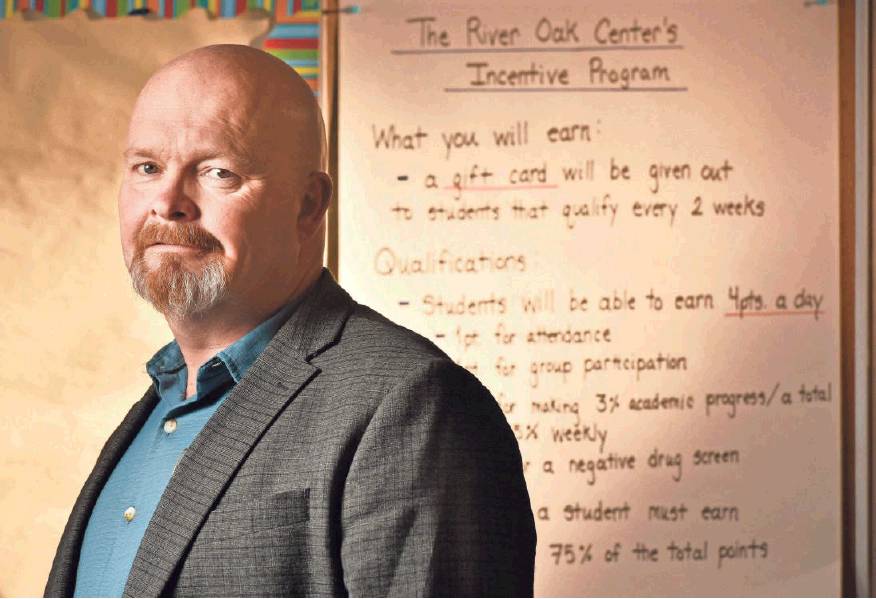Teens rebuild sobriety at Jacksonville center
Beth Reese Cravey
Jacksonville Florida Times-Union USA TODAY NETWORK
Octavia Chapman was so thankful for the opportunity to attend River Oak School, an alternative high school for Jacksonville teens who are recovering from substance abuse or addiction, that she publicly recommended it to other students in similar straits.
“They’re a good support system, they’re good people and they gave me another chance,” she said in a video on the Duval County Public Schools Vimeo platform. “I am going to prove … that I can do it and take advantage of it.”
Whenever she needs help, a teacher, counselor or other staff member is available, though currently on a virtual basis.
“They’re really supportive there. I’d give them a chance,” said Chapman, 18.
She was part of a recent River Oak bid to build public awareness of its nonprofit work and help fill a budget gap. Because of the pandemic, a fundraiser planned in March was canceled and other expected gifts evaporated. Then this summer Gov. Ron DeSantis vetoed a $100,000 state grant, 25 percent of the center’s annual budget.
“It is critical that we make up this deficit as we operate on a very tight budget and all of the funds raised go to support the youth, with the exception of a fairly small amount for salaries,” said Dan Renaud, founder and executive director. “Should we be unable to replace these funds, we will have to reduce services as well as the number of youth we can serve.”
River Oak, one of 40 such “recovery schools” nationwide and the only one of its kind in Florida, opened in 2014 to serve local students who are referred by Duval Public Schools or the juvenile justice system. Students ages 14 to 19 take part in an individualized, online academic program and receive counseling, including support groups and, when needed, family counseling.
Current enrollment is about 25 students, with the school day from 9 a.m. to 2 p.m. Some will transition back to public schools, while others will stay at River Oak to graduate.
“It can be overwhelming for a teen to go to residential treatment or begin the journey of recovery. One of the biggest challenges they face is when they re-enter the school system,” according to the center website.
River Oak “offers students an opportunity to grow [spiritually, academically, emotionally and socially] by integrating the principles of recovery into their daily education,” according to the website. “The development of tools and strategies for maintaining sobriety will help our students succeed on the lifelong road to recovery … [and build] the resilience to bounce back from the disappointment and stress of everyday life that can trigger a relapse.”
The center and its students showed their resilience in the spring when the pandemic forced Duval Public Schools online. River Oak’s academic program was already largely virtual, overseen by an in-person teacher.
Students quickly adjusted to interacting with their teacher and online school work from home rather than the center and attending their 12-step, abstinence-based counseling and support group sessions via Zoom.
“It’s kind of heartwarming. Of all the places that you would think would be struggling … We have beaten the odds and successfully run our program virtually,” said board member Beverly Tremel.
Initially there were worries about how well virtual counseling would work because it involves “one-on-one [interaction] and a lot of handholding to keep kids engaged,” she said. “We have been able to do that. … Truly a miracle.”
Parents have appreciated the center “maintaining … status and structure” during the pandemic, Renaud said.
“My focus was to make sure we stay connected to the family,” he said. “That’s going to be our biggest help for them.”
Duval public schools reopened Thursday, but center services will remain virtual, at least for the first nine weeks of the school year. The center may reopen after that, Renaud said.
Beth Reese Cravey: (904) 359-4109
